It’s a new year, and as always, it is a good time to support the Indigenous authors of North America. If you haven’t yet seen this year’s Book Riot’s read harder challenge, several of these titles could potentially check a box off our list. In the spirit of the new year, I encourage you to read as widely as you can. Challenge yourself, take action, and decolonize your bookshelf.
Graphic novels are a relatively young medium, but have a special ability to cut right to the chase of a story. They provide a type of double understanding that helps to reinforce complex ideas. By pairing text with illustration, the art form helps us to experience the work as a whole. Additionally, comics are an important tool for accessibility. A person who may not read a 300 page book may be able to read a 300 page graphic novel with little trouble.
This list is meant to serve as a jumping off point into literature by Indigenous authors. These graphic novels range from historical to contemporary. They cover topics from history, to activism, to the interpersonal. What these works have in common is their commitment to decolonization and powerful stories.
This Place: 150 Years Retold by Kateri Akiwenzie-Damm and others
This is an indispensable book and required reading for anyone in unceded territories. In this beautiful collection, ten stories by 11 Indigenous authors provide an overview of post-contact colonial Canada. The events captured in this book range from hidden histories to a speculative future, each story rendered with fluency and expertise.
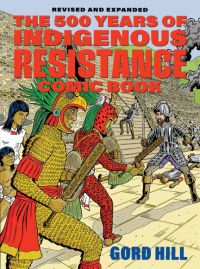
500 Years of Indigenous Resistance by Gord Hill
When 500 Years of Indigenous Resistance was first published in 2010, it was regarded as groundbreaking. Now, in the revised and expanded edition, this history of activism and resistance is more powerful than ever. Author and artist Gord Hill explores everything from Spanish conquest in South America to the Oka Crisis. With strong illustrations, this book is a testament to the strength of Indigenous resistance.
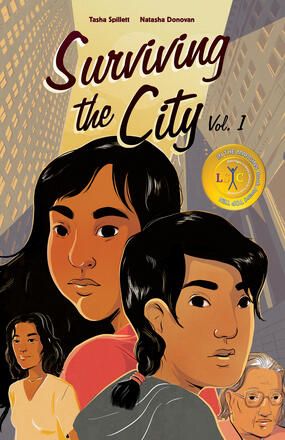
Surviving the City by Tasha Spillet and Natasha Donovan
In this YA graphic novel, Teens Dez and Miikwan are very close. Together, they navigate the difficult urban landscape. When Dez’s grandmother gets sick, Dez is told that she can no longer stay with her. Then, with the threat of a group home looming, she cannot bear to go home and disappears. Miikwan is heartbroken, and the wound of her own missing mother resurfaces. Together, these two Indigenous authors explore womanhood, colonialism, and the devastation of a missing loved one.
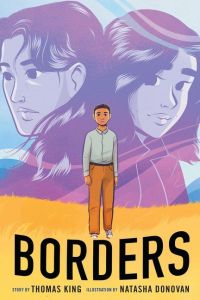
Borders by Thomas King and Natasha Donovan
While Thomas King has been a prolific indigenous author for many years, 2021 brought us his first graphic novel. Natasha Donavan brings to life one of his most celebrated short stories, published in 1993 and based on King’s own experience with nationhood.
The graphic novel details the experiences of a young boy and his mother who are posed a not-so-simple question: Are you Canadian or American? They answer Blackfoot. Hence, the two of them are stuck in limbo between nations.
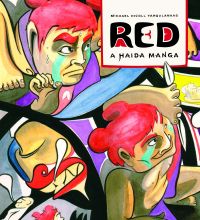
Red: A Haida Manga by Michael Nicoll Yahgulanaas
Author and artist Michael Yahgulanaas combines Japanese illustration with Haida oral tradition in this graphic work. Red’s sister was abducted by a band of raiders years ago. When word comes that his sister has been seen alive, he sets out to find her and get his revenge. Through beautiful hand-painted pages, Yahgulanaas takes us through a story of rage and retribution.
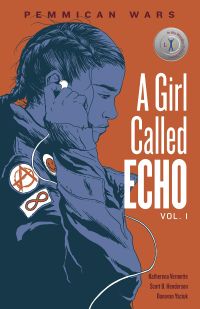
Pemmican Wars: A Girl Called Echo by Katherena Vermette and Others
Echo Desjardins, a 13-year-old Métis girl, is struggling with feelings of isolation and loneliness at her new school. During one fateful history class, she finds herself transported back in time, witness to a bison hunt. Then, she finds herself back in the present. Over the course of the next few weeks, Echo slips back and forth between the past and present. Through this four part series, she learns more about the perilous time of the pemmican wars and connects with her own heritage.
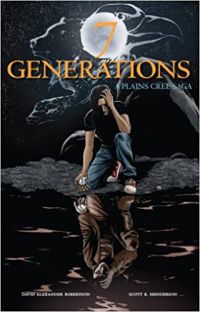
7 Generations: A Plains Cree Saga by David A. Robertson and Scott B. Henderson
Following the journey of one Cree family through three centuries and seven generations, this epic explores generational trauma, colonization, and family bonds. The focal point of the story is James, a residential school survivor, and his son Edwin, as they attempt to reconcile with the past.
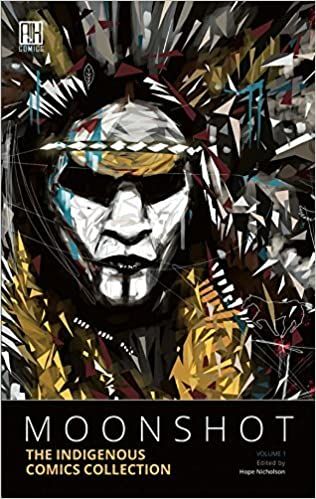
Moonshot: An Indigenous Comics Collection by Hope Nicholson
Presenting work from dozens of creators, Moonshot showcases some of the finest North American comics. This collection features traditional storytelling as well as hopeful speculative futures. Further work can be found in the second and third collections of Moonshot.

The Outside Circle by Patti LaBoucane-Benson and Kelly Mellings
This story grapples with the hard subjects of drugs, gangs, and intergenerational trauma. Pete, a young Indigenous man wrapped up in gang violence, lives with his heroin-addicted mother and his brother Joey. When he and his stepfather get into a fatal altercation, Pete ends up in jail. Initially, Pete keeps up ties with his gang. Shortly after imprisonment, a jail brawl forces Pete to reconcile with his choices. Finally, he begins his journey towards rehabilitation and traditional healing. This story draws significantly on the author’s 20 years of experience with healing and reconciling from gang violence.
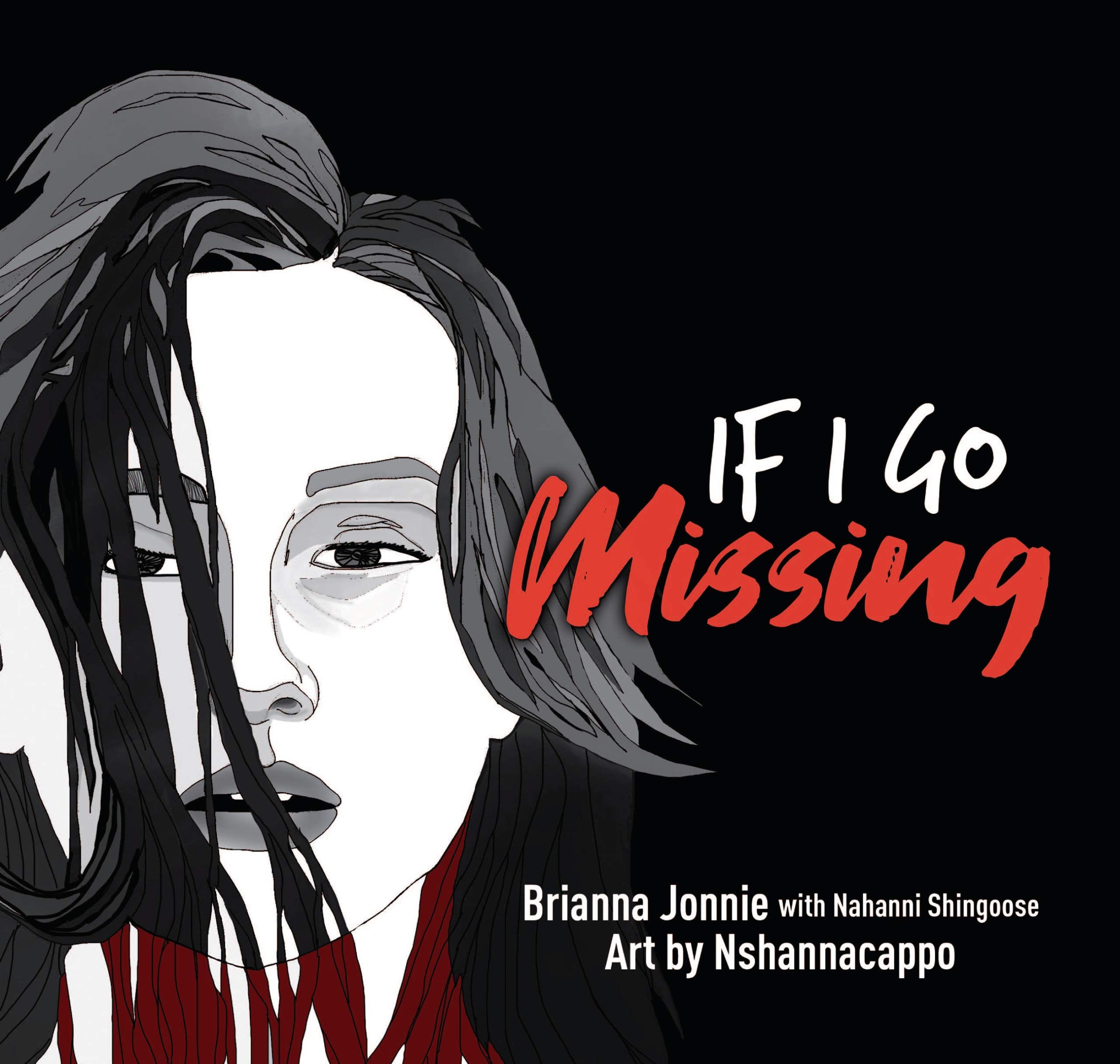
If I Go Missing by Brianna Jonnie and Neal Shannacappo
If I Go Missing combines fiction with nonfiction in this devastating work. This book is based on a real letter by 14-year-old Brianna Jonnie to the Winnipeg Chief of Police. In her letter, Jonnie calls out the police in failing to properly investigate missing Indigenous people. Moreover, she urges the police to “not treat me as the Indigenous person I am proud to be,” if she were to be reported missing. The original letter went viral and became the inspiration for a documentary, as well as this book.
For more great Native, Indigenous, and First Nations reads, check out Native children’s literature, Indigenous memoirs, and great audiobooks by Native, Indigenous, and First Nations writers.














